One month after I lost my cat, Tallis, I realised I was feeling two separate emotions. The first was grief for Tallis herself, for which there was no quick fix. But the second emotion was one of loneliness. The rooms of my apartment seemed to yawn their emptiness, and my crockery did not ever once look pleased to see me. As I made a cup of tea in one such ungrateful mug, I wondered why I had bothered coming home.
While all perfectly understandable, this was a spectacularly unhelpful emotion during a time when everyone was being encouraged to stay indoors to combat the spread of the novel coronavirus pandemic sweeping across the globe. I had not intended to adopt another cat so quickly, but I began to feel there was zero point in holding out when so many cats needed homes, and I needed a reason to come home.
Cassie at the JCN shelter in Tokyo.
Pet adoption in Japan is not always a trivial matter for foreign residents. Japan’s immigrant population is seen as a flight risk, making shelters reluctant to approve applications for pets. This is true even for proven pet owners, and despite the very high level of animal euthanasia in the country. However, the Japan Cat Network (JCN) is a foreigner-run charity in Japan that welcomes applications from non-citizens. The JCN has two shelters based on Tokyo and Kyoto, and also an active community on Facebook that offers advice from topics ranging from cat illness and poor behaviour, through to rescuing a feral cat or even favourite brands of kitty litter. I had been supporting the JCN for a number of years and reached out to explain the problem of unresponsive tea cups and the sadness of a cat-less home. Did the JCN perhaps have an adult moggy in their shelters, who would be happy being the only cat and not mind if I was at work during the day?[*]
How about Cassie? One of the JCN volunteers suggested to me in a brief chat, pointing me towards a description of Cassie on the shelter’s website.
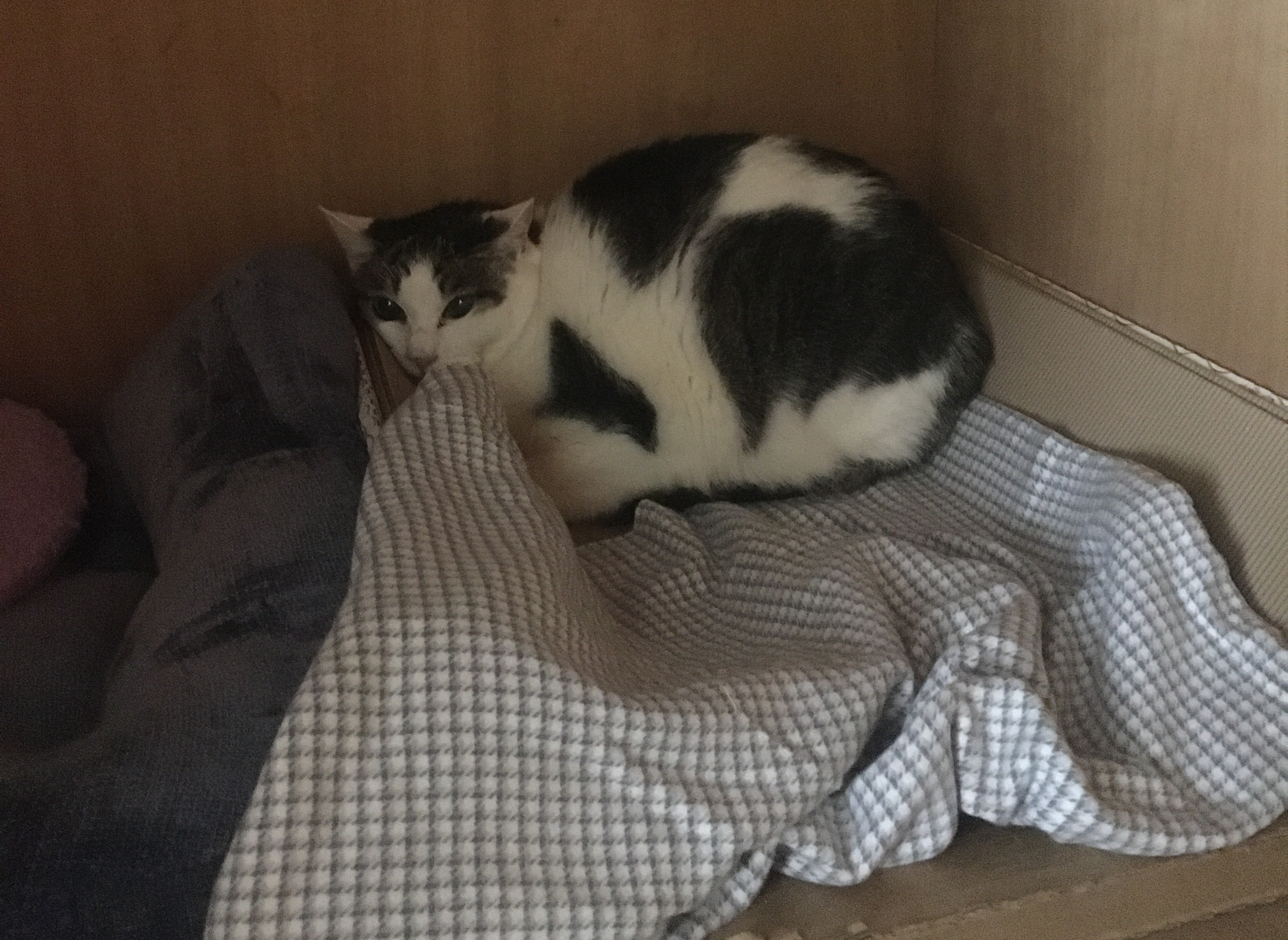
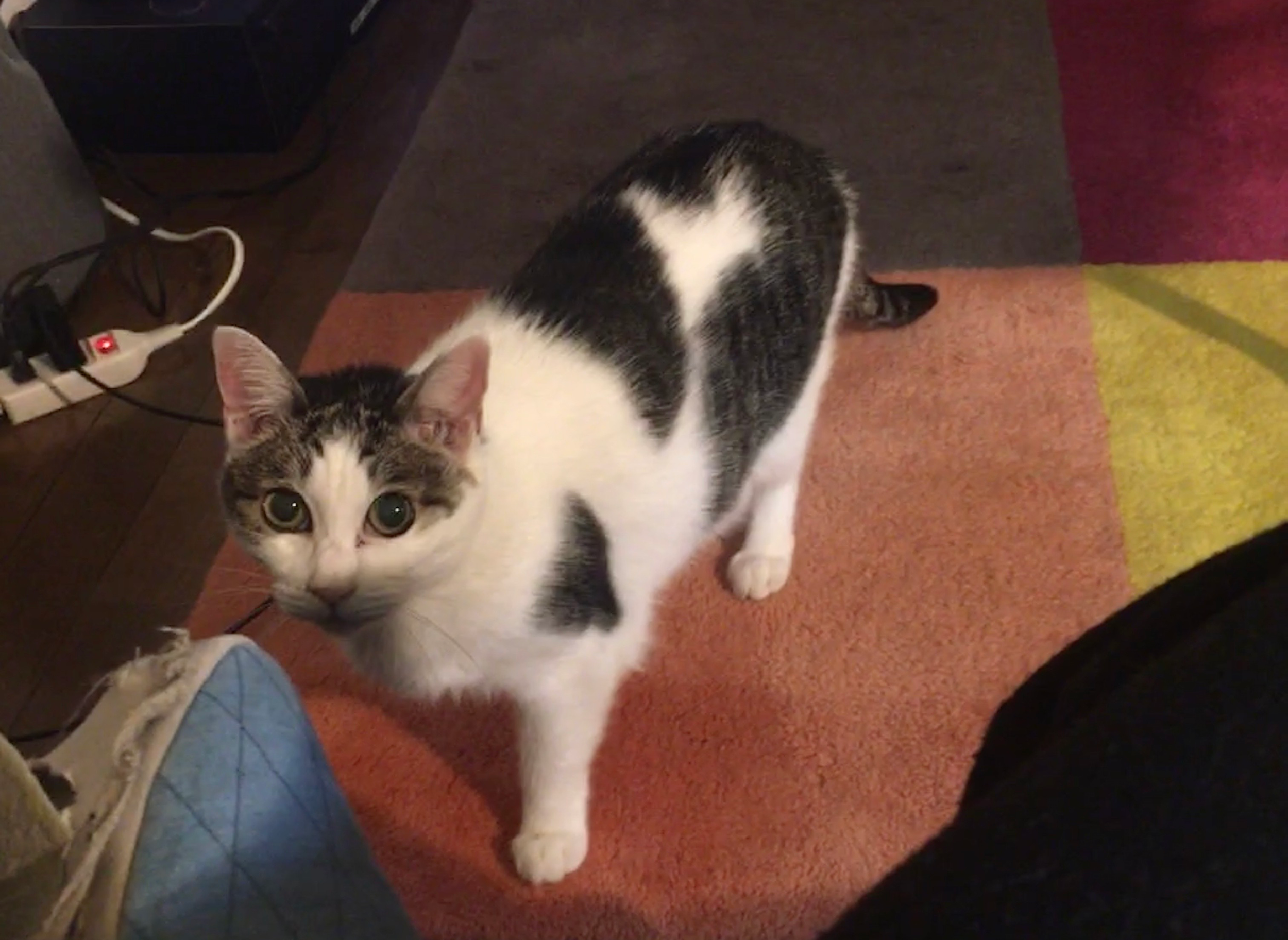
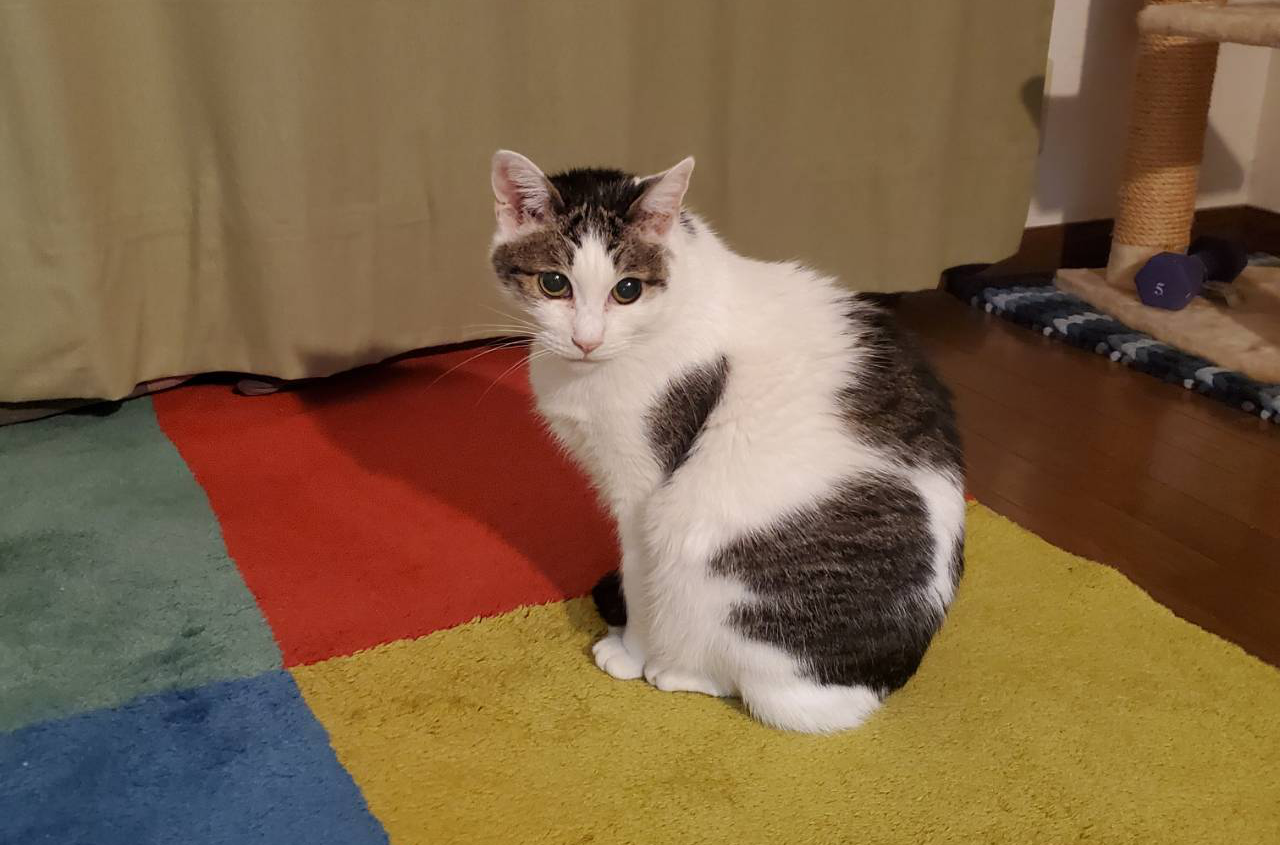
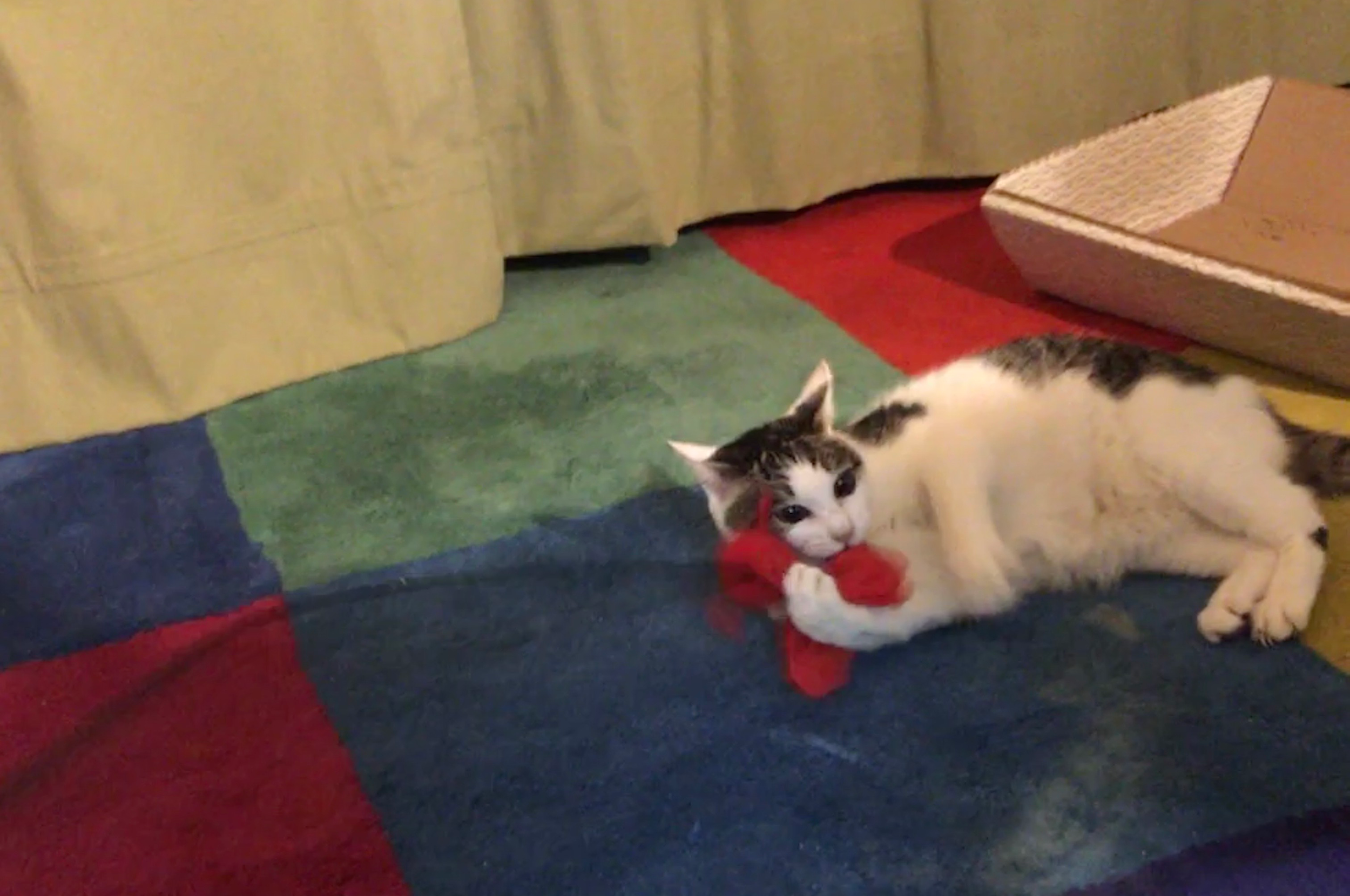
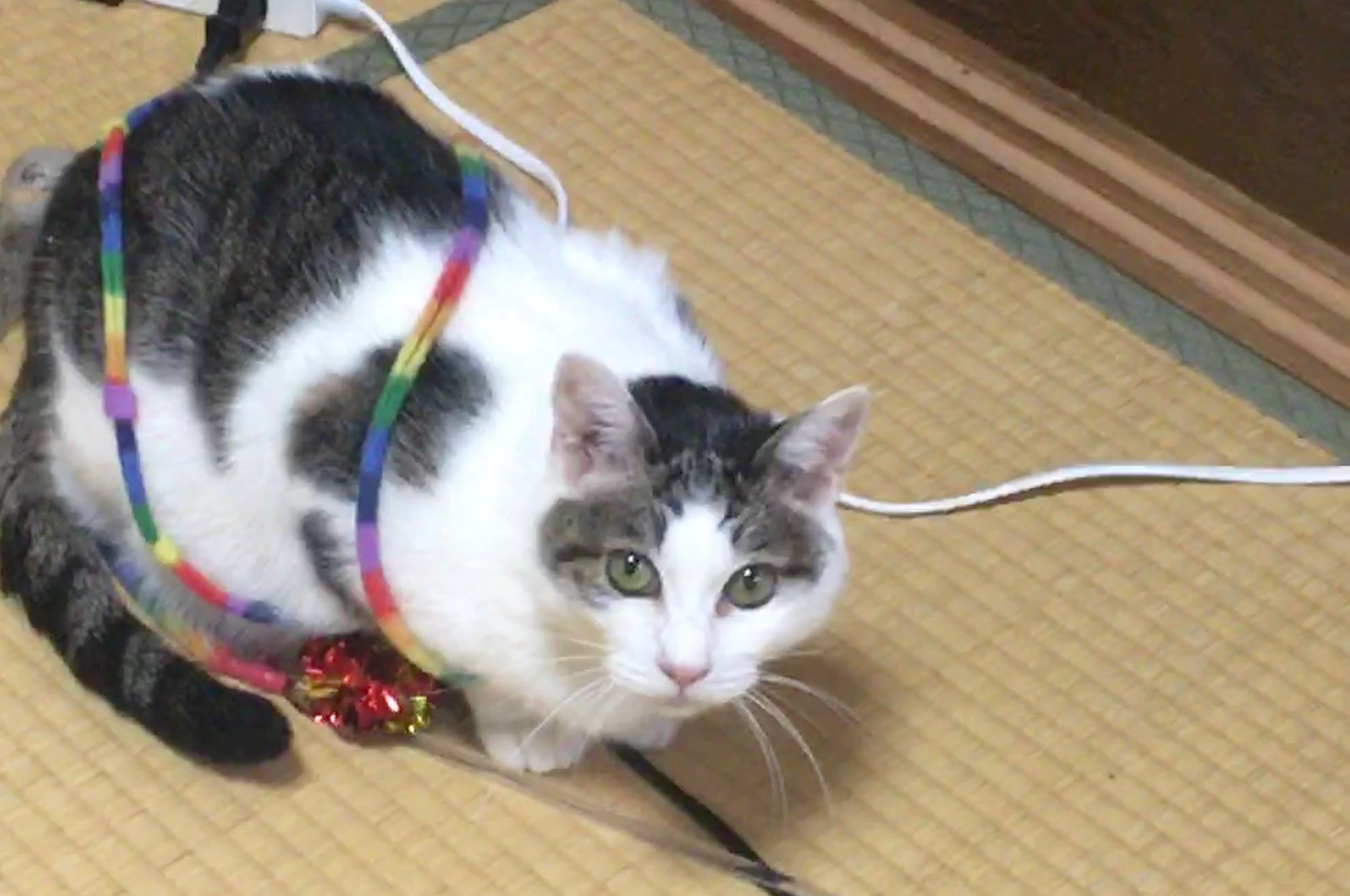
Cassie was a tabby and white cat, about 12 years old. She had been rescued with her litter of kittens during the Fukushima nuclear disaster, which had occurred in 2011 in the wake of the Tōhoku earthquake; the most powerful quake ever recorded in Japan. As the teams on the ground gathered up as many animals as possible in the nuclear zone as it was being evacuated, Cassie was caught and named after Mama Cass in the American rock group, “The Mammas & the Papas”.
Discovering the details of Cassie’s past from a decade previously was surprisingly lucky. While the shelter had a brief record of each cat, one of my friends had actually been part of the animal rescue teams at Fukushima. Her stories of that time are harrowing, with people being forced to flee their homes and head to shelters that did not allow pets.
A young Cassie, recently rescued (credit: kinship circle)
The animals the group took in were therefore a mix of pets and strays. Given Cassie was not comfortable with people, she was likely always a street cat. Under normal circumstances, she might have been a good candidate for TNR (Trap, Neuter and Return) as she was too old to easily socialise. However, with the people gone, returning to the streets would have meant starvation and Cassie was taken into the shelter. I was able to connect with the people who had rescued Cassie, and remembered her from the early days at Fukushima. Sadly, most of Cassie’s kittens did not make it. But one moved to Arizona to pursue the American dream! His name is Paul and he looks a lot like his mum.
Adopting Cassie did have risks. Cassie was roughly the same age as Tallis had been when she died. She was also FIV+, the feline version of HIV, and had herpes that made her prone to upper respiratory infections with goopy eyes. While seemingly quite content in the shelter, Cassie had never really become friendly, and was not comfortable being picked up or even stroked. However, Cassie did enjoy playing with cat toys, which suggested this furry feline had a zest for life. Moreover, she had lived at the JCN shelter for the last ten years and had never had a home of her own and damn it all, I was going to give her one!
On December 9, Cassie came home. I started a hashtag on twitter, #CassieCat, and an internet star was born.
[*] Not that returning to work has actually happened, but even in December 2020, that was hard to predict!


